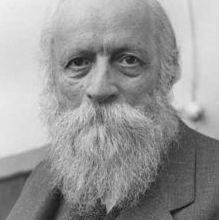
Martin Buber (1878-1965) is an Austrian-born Jewish philosopher who has had great influence upon modern Western thought in philosophy, theology, religion, and pedagogy. He is the best-known representative of dialogical personalism. His main work is the book Ich und Du (I and Thou), written in 1923.
In 1930, Buber was appointed professor at the University of Frankfurt am Main, but he resigned in protest immediately after Hitler’s rise to power in 1933. He then founded a center for the education of Jews, which became of great importance once the German government banned Jews from public education. In 1938, he left Germany and settled in Jerusalem where he became a professor at the Hebrew University.
Buber’s anthropology builds upon the premise that humans are always faced with other beings that they can approach in an I-It mode or and I-Thou mode.
For Buber, the relational constellation of I-Thou is a foundational word, which can only be said with one’s entire being, unlike I-It/She/He, which can never be said with one’s entire being. What is fundamentally at issue here is not an I and a Thou as separate beings, but rather the foundational relationship: I-Thou. I and Thou are integrated into one another, and they are each other’s precondition. It is in the founding encounter that the I enters into its immediate relationship with the Thou.
The individual bears within it an inherent Thou, and through this Thou the individual becomes human.
By this Buber means to say that it is within a relationship that the identity and self-understanding of an individual are founded and that it is within relationships that life may be lived. The concept of “the inherent Thou” describes the longing, always present in a human person, for other humans.
Without the Thou the I would be crippled. Or better yet: There is no I in itself; there is only the I that is relationized with a Thou.
